18 Sep A Home is Just the Beginning
Partnership with Covenant House Alaska gives unhoused individuals more than a place to call home
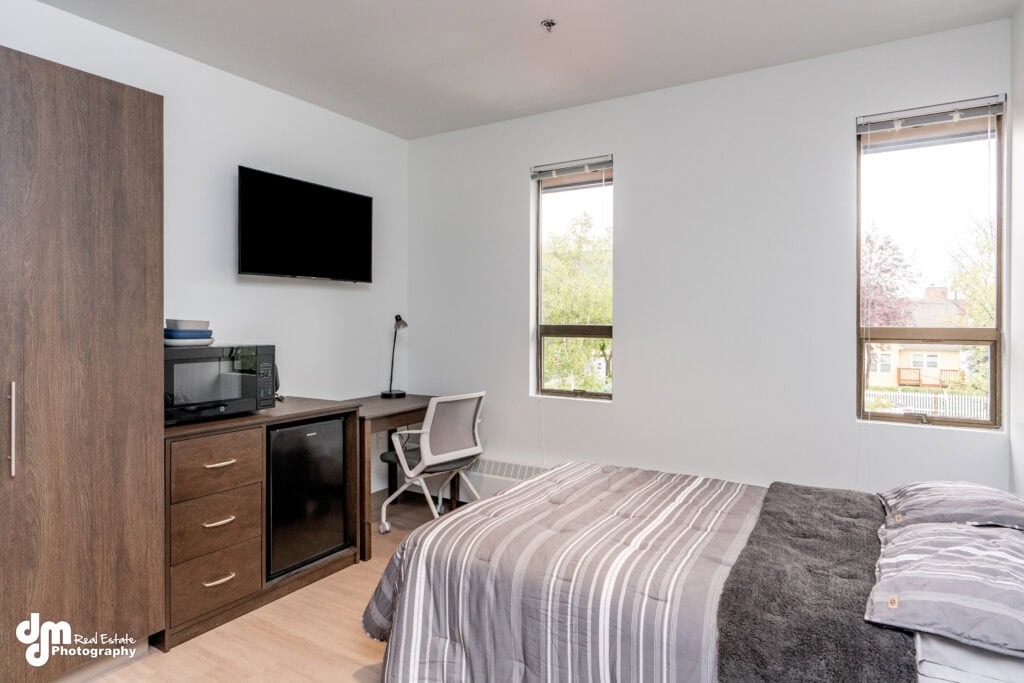
In May, CITC moved three homeless individuals into their own studio apartments in the residential space above Covenant House’s Covey Academy, located in downtown Anchorage. By June 15, thanks to this new partnership between organizations, all eighteen Covenant Academy apartments were occupied by CITC program participants—and they have stayed that way.
But a new home isn’t the end of the story.
“A lot of people in our community think, oh, you’re homeless. Let me give you a home; [now] all your problems are solved. But that’s just the beginning,” said Billy Blixt, CITC’s senior manager of Participant Engagement.
Learning to Manage Life
Residents can stay housed in the apartments—which CITC staff and program participants casually refer to as the “Covey Inn”—for twelve months. After that, the goal is for residents to move into permanent housing.
But residents don’t have to make what can be a difficult transition on their own.

While Covenant House has provided the accommodations—which include access to a communal kitchen and recreation area; a gym; and laundry facilities; each apartment has a private bathroom—CITC provides case management. To maintain residence at the inn, individuals must be actively engaged with CITC programs.
This requirement looks beyond a person’s homelessness to address the other areas in their life that can make them successful in eventually maintaining permanent housing.
“This is a chance for them to get on their feet and feel empowered,” said Katie Driscoll-Farid, CITC’s Housing Services coordinator.
Katie is frequently on site at Covey Inn to help residents stay involved with CITC services. She partners with CITC’s case managers, who work with residents to keep them connected to programs that offer life skills development, job training, interview practice, and sobriety support.
“We want to ensure that we are maximizing that twelve-month [stay],” Billy added. “So we’re talking about what those permanent housing plans are. We’re talking about jobs, job training, and the type of stuff to really prepare folks for when that end comes—that they do have a plan and they do have somewhere to go.”
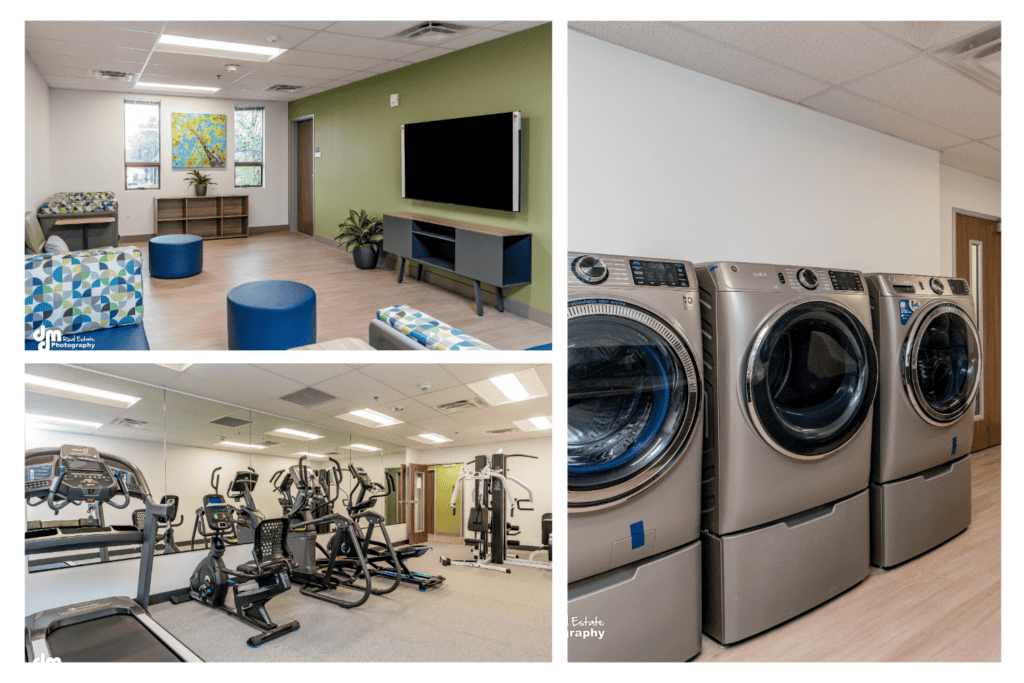
Beyond the Basic Needs
CITC’s partnership with Covenant House isn’t the only transitional housing program in Anchorage providing people with more than just housing.
In August, the Anchorage Daily News profiled the Next Step initiative, which similarly provides unhoused people with a year of housing (in the form of rent assistance) and case management. The program, the paper reported, is based on a successful initiative out of Houston, Texas, that achieved a reduction of homelessness by 60 percent over ten years.
Billy hopes CITC’s program can be just as successful.
He points to Maslow’s hierarchy of needs, where physiological needs must be met before a person can focus on meeting other necessities, like employment, health, social status, and achievement.
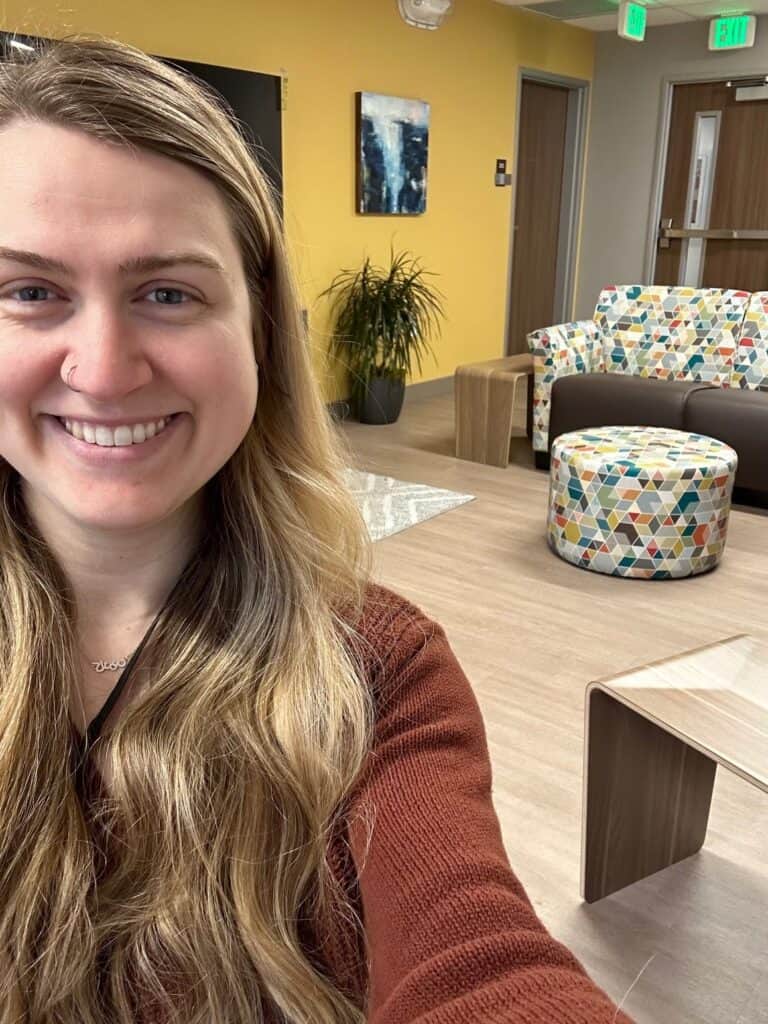
Covenant House covers the needs at the bottom of the pyramid—safety, housing, food—by providing rooms and security at Covey Inn, and by partnering with Bean’s Café, which delivers three meals a day for each resident.
With their basic needs covered, Covey Inn residents have more freedom to work on becoming secure in other areas, Billy said, with CITC’s help.
“We’re coming back with wraparound services that are provided by CITC. We’re getting them involved with programs and services so that they can work on being successful. We have to offer lots and lots of other things to really help these people understand that there is a way out of the homelessness situation.”
Combining Strengths
Most of the CITC participants living at Covey Inn are between the ages of 30 and 40—a demographic that correlates with the largest age group among Anchorage’s homeless population. (Individuals between 35 and 44 account for over 21 percent of the city’s unhoused.)
Notably, most resources offered by the city’s nonprofit community are aimed at individuals younger or older than this age range.
The Covenant House residences were, in fact, originally built to house young adults ages 18 – 25 who are engaged with the Covey Academy, which provides vocational training. But as Covenant House pivoted to looking at other housing for the youth it serves, the organization began considering how to use its building as a community space.
Covenant House Executive Director Alison Kear said that when she heard CITC was looking for ways to serve Anchorage’s unhoused population, she saw an opportunity for two organizations to work together based on their strengths and their needs.
With Covey Academy serving youth who are developing job skills, and the “Covey Inn” apartments providing housing for homeless individuals, Alison said, “Our young people get an opportunity to learn how to manage space, how to deal with people, how to handle situations. And CITC gets an opportunity to create community around individuals that need community.
“It’s a perfect example of understanding your partner enough to know the resources and the opportunities you have, and to combine those instead of duplicating services,” she added. “It’s a courageous step toward meeting two organizations’ goals that are different and distinct, but complementary.”
Residents placed at the Covey Academy apartments by CITC have experienced unexpected benefits of living near the students: Since Academy students are all studying trades, they get practice using their skills anytime an apartment needs service. When a toilet in one resident’s room became clogged, for example, an Academy student training to be a plumber got on-the-job experience—and the repair was free for CITC.
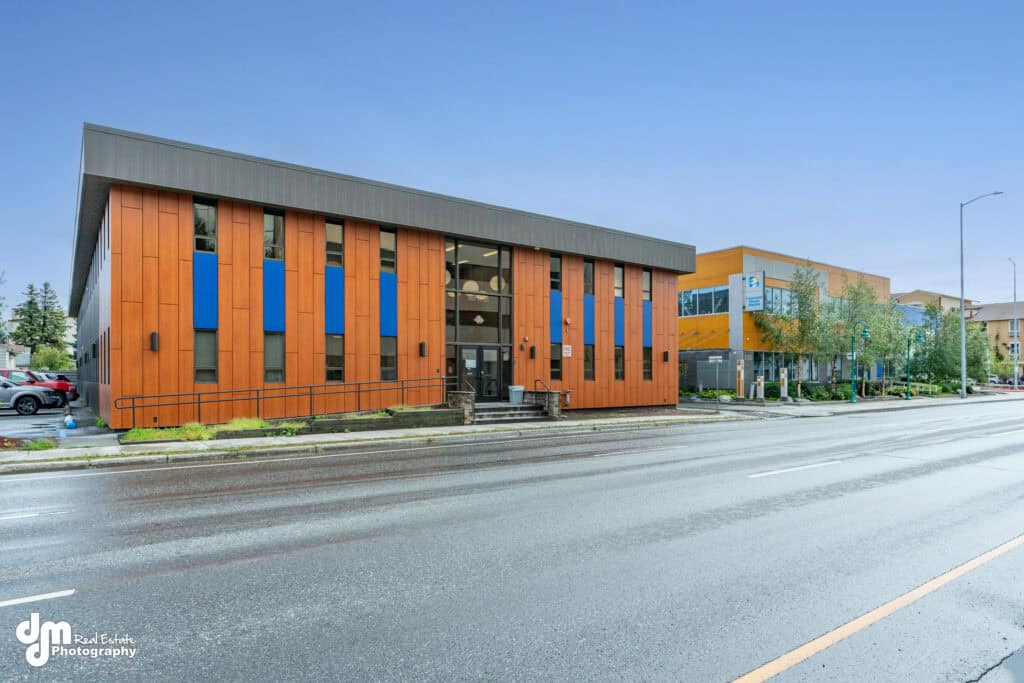
The End is Another Beginning
If all goes according to plan, the first people to complete their stay at Covey Inn will move into permanent housing in May 2025. When that happens, each individual who successfully completes the program will have up to $2,400 to use as a security deposit, rent, or other housing payment, thanks to a savings plan that’s part of staying in the Covey Academy apartments.
To help residents build their budgeting and independent living skills, the program requires them to “pay” a small amount as part of their stay. This “rent” payment, which varies from $50 to $200 per month, depending on a person’s employment status, is deposited into an account and returned to the resident when they move out.
“We don’t want to end someone’s stay in transitional housing without some idea of what they’d like to do after,” Katie described. “It’s hard to think that far in the future, and it’s intimidating. So we’re trying to empower them to make decisions that will help them succeed.”
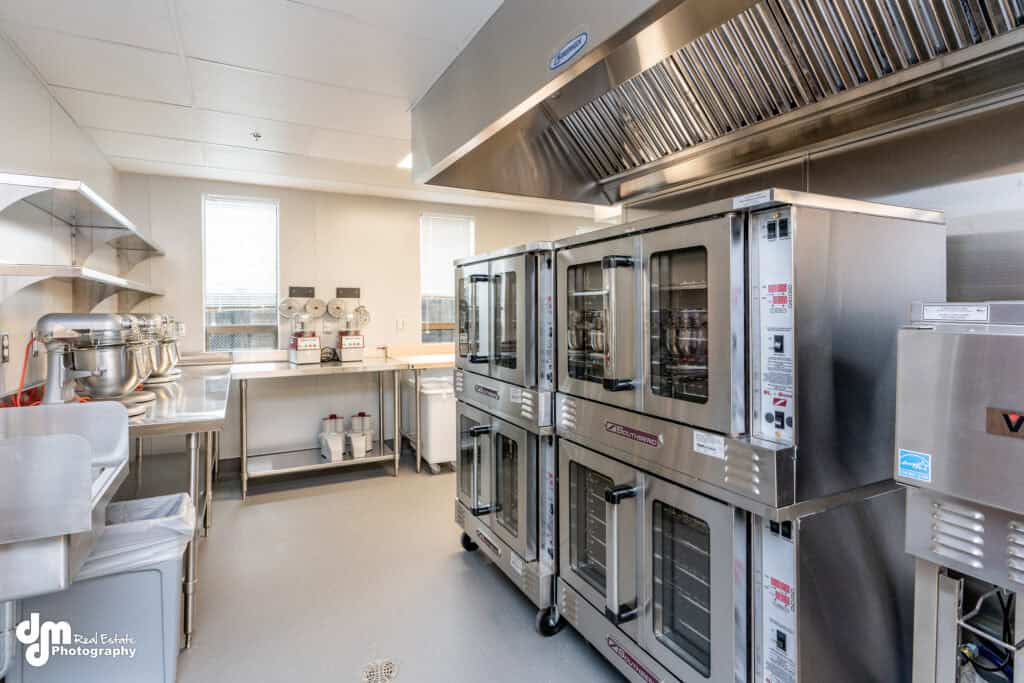
Occasionally, things don’t work out. Covey Inn has strict rules around maintaining residence: Program participants can’t have pets in their apartments. Partners and friends can’t stay overnight. There’s zero tolerance for drugs and alcohol. Because of rule violations, CITC has had to ask some residents to leave.
When that happens, though, people exiting the Inn aren’t just left without a place to live again.
CITC provides a 30-day bus pass for those who leave the program; the organization assists individuals in accessing shelter beds and in exploring other options.
“Even though you weren’t successful in our program, we’re not going to throw you to the streets,” Billy said. “[This program] might not be for you, but where can we get you? We want to help someone find the place where they can be successful.”
For those who do complete their stay through next May, Billy hopes to be able to send them to permanent housing with a gift that can help them get settled. He’s thinking of putting together a big laundry basket for each person and filling it with essentials, like kitchen supplies and toiletries.
Whatever the CITC Housing Services team decides on, they want it to be an acknowledgement of how far the residents of Covey Inn have come.
“It’s not easy for them,” Billy said. “They’re making huge behavioral changes in their lives, and we want to honor that.”
Covey Inn accepts Alaska Native/American Indian ages 18 and older who do not currently have access to permanent housing. Covey Inn residents must stay active with CITC programs to maintain occupancy. For more information about the Covey Inn or about CITC’s other housing services, contact Katie Driscoll-Farid at (907) 793-3315.


